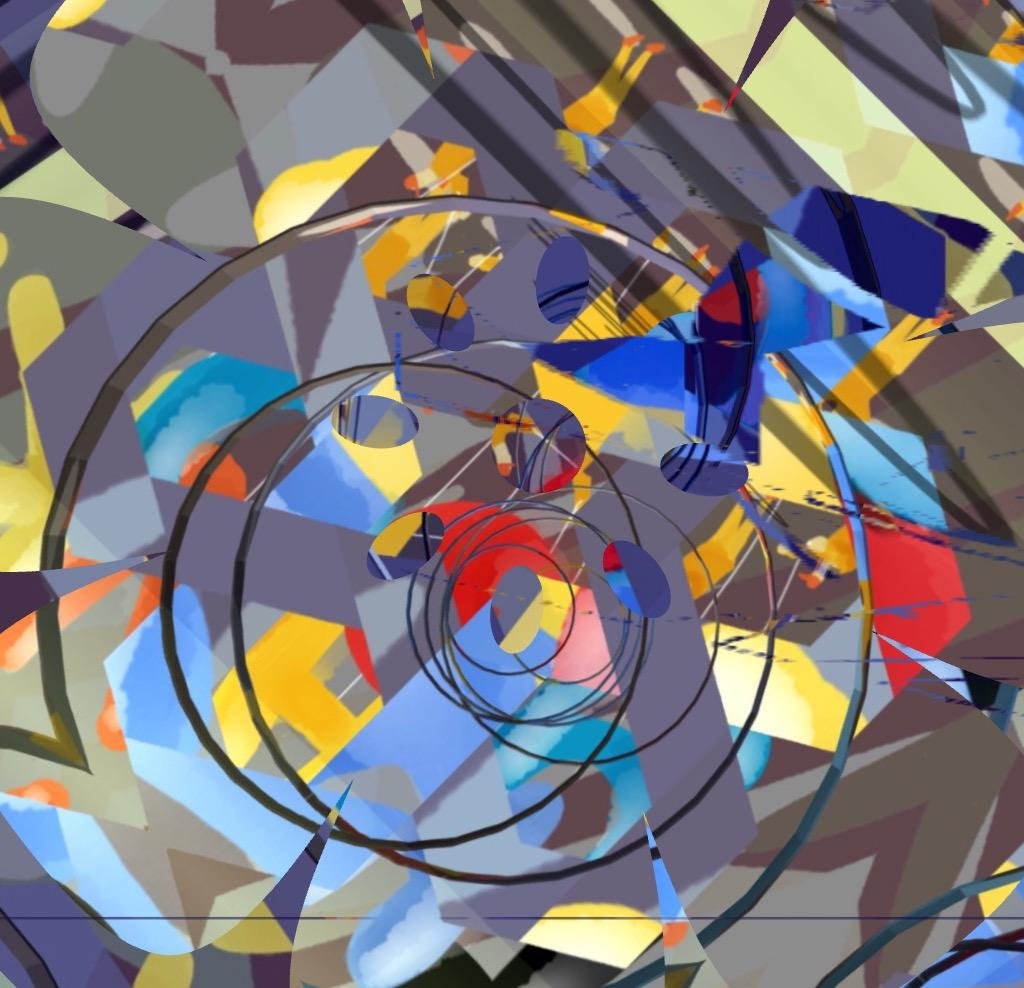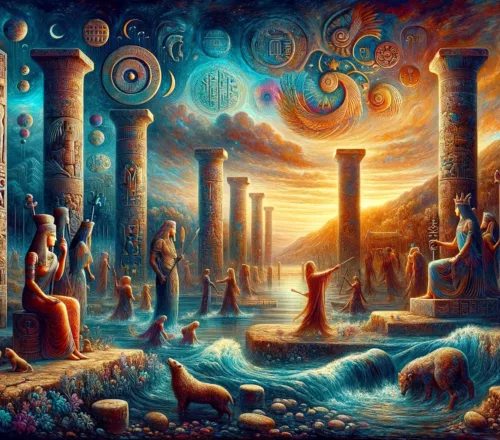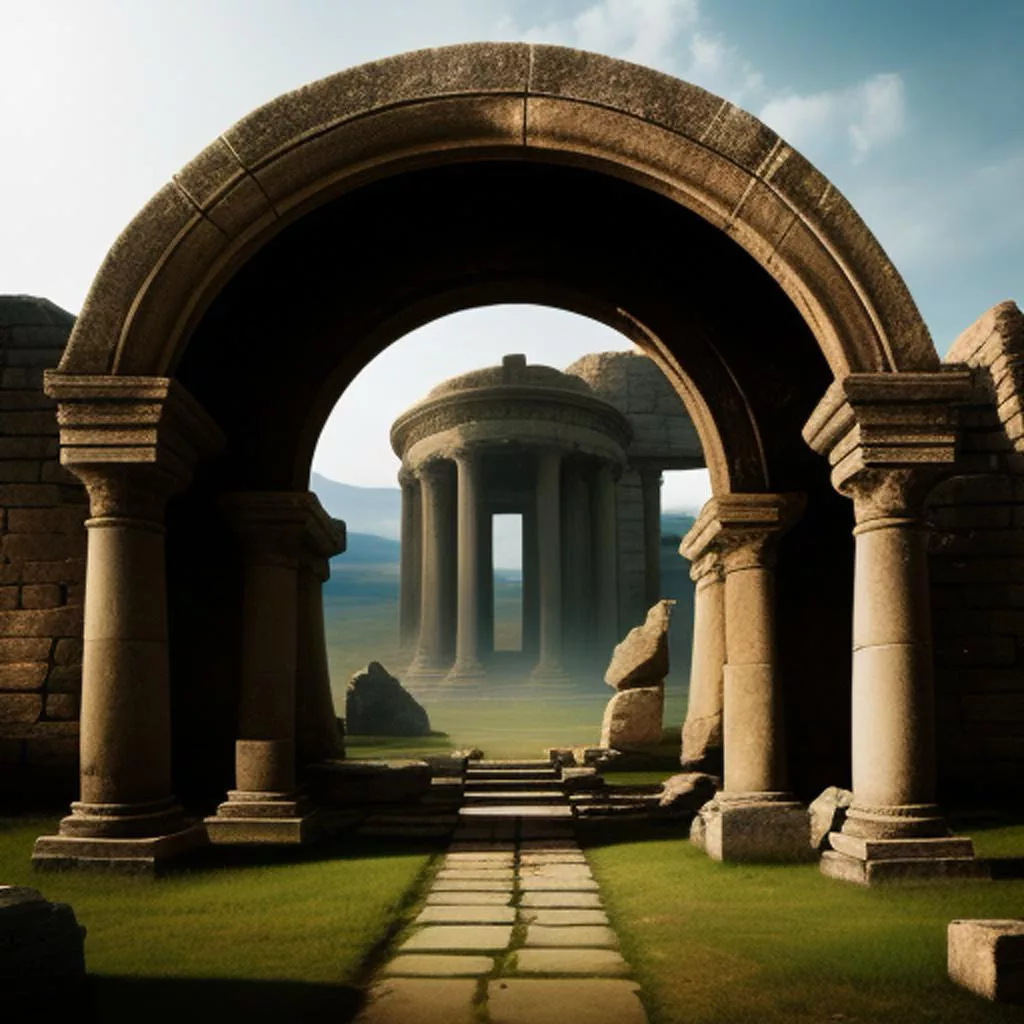
Table of Contents
The ether and the ancients
The concept of the ether (or aether) has deep historical roots, with its origins in ancient philosophies and sciences. Ancient civilizations had various theories about the ether, which they often conceptualized as a primordial, all-pervading substance or element that filled the universe and was responsible for the transmission of light, force, and even life itself. These ancient contributions laid the groundwork for centuries of philosophical and scientific speculation about the nature of the cosmos.
Greek Philosophy
The idea of the ether was extensively explored by ancient Greek philosophers. Aristotle, in particular, proposed the existence of a fifth element, or “quintessence,” beyond the four classical elements of earth, water, air, and fire. This fifth element was thought to compose the celestial spheres and bodies and was immutable, eternal, and unchanging, in contrast to the four terrestrial elements, which were subject to change and decay.
Indian Philosophy
In Indian philosophy, particularly within the Vedas and Upanishads, there’s a concept similar to ether known as “Akasha.” Akasha is considered the all-pervading space or ether that constitutes the foundation of all things in the universe. It’s seen as the medium through which sound is transmitted, and it’s also associated with the spiritual realm, serving as a record of all events, actions, and thoughts that have ever occurred.
Chinese Philosophy
Chinese philosophy and traditional cosmology also have a concept akin to ether, referred to as “Qi” (or Chi). Qi is the vital force or energy that flows through everything in the universe and is essential for life. While not identical to the Western concept of ether, Qi shares the idea of an all-pervading substance or energy that sustains and connects the cosmos.
Alchemy and the Middle Ages
Throughout the Middle Ages and into the Renaissance, alchemists and scholars continued to explore and expand upon the concept of the ether. It was often incorporated into theories of alchemy and natural philosophy as the subtle essence that transmuted base metals into gold or was the medium through which celestial influences affected earthly events.
Scientific Revolution
By the time of the Scientific Revolution, the concept of the ether evolved to become more closely associated with the transmission of light and gravitational forces. Scientists like Isaac Newton considered the possibility of an ether to explain action at a distance, such as gravity. Later, in the 19th century, the ether theory gained prominence as a means to explain the propagation of electromagnetic waves, before being ultimately superseded by the theory of relativity in the early 20th century.
Artistic Gallery
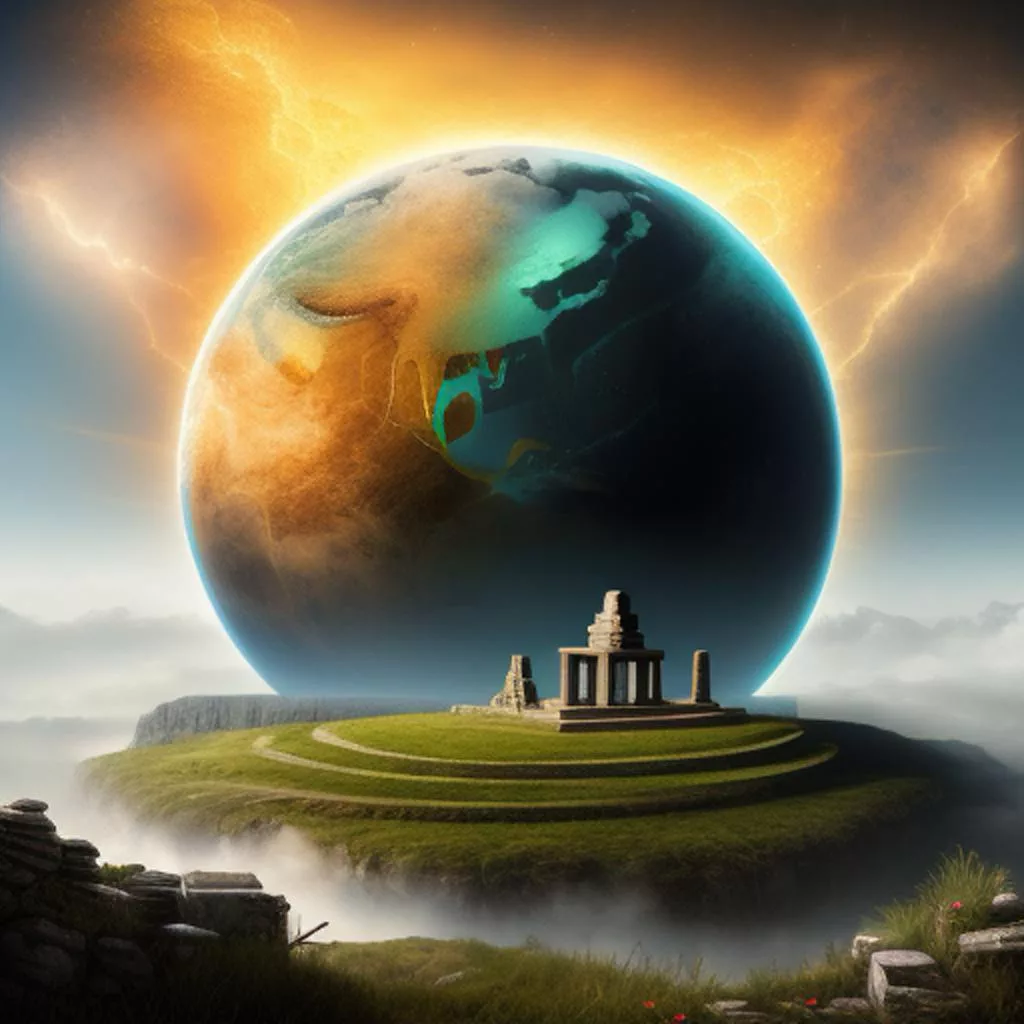
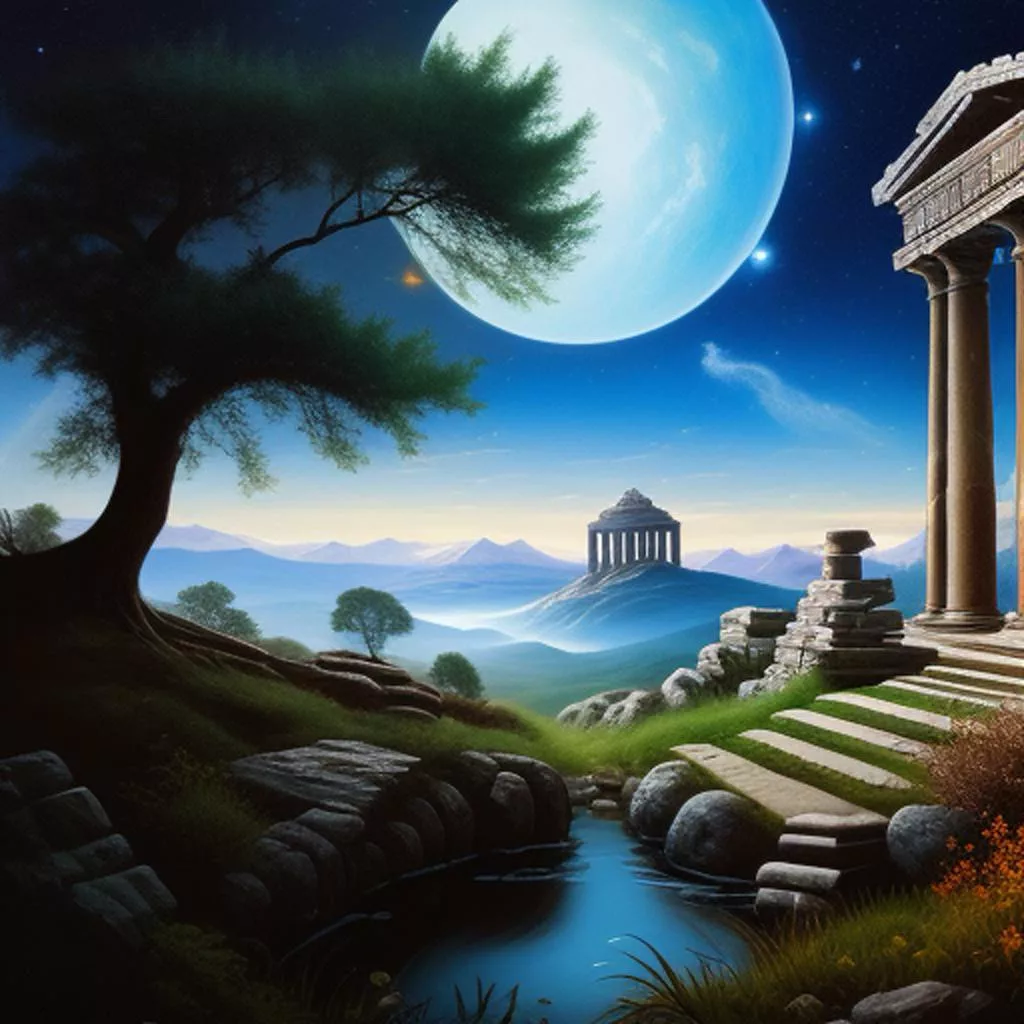
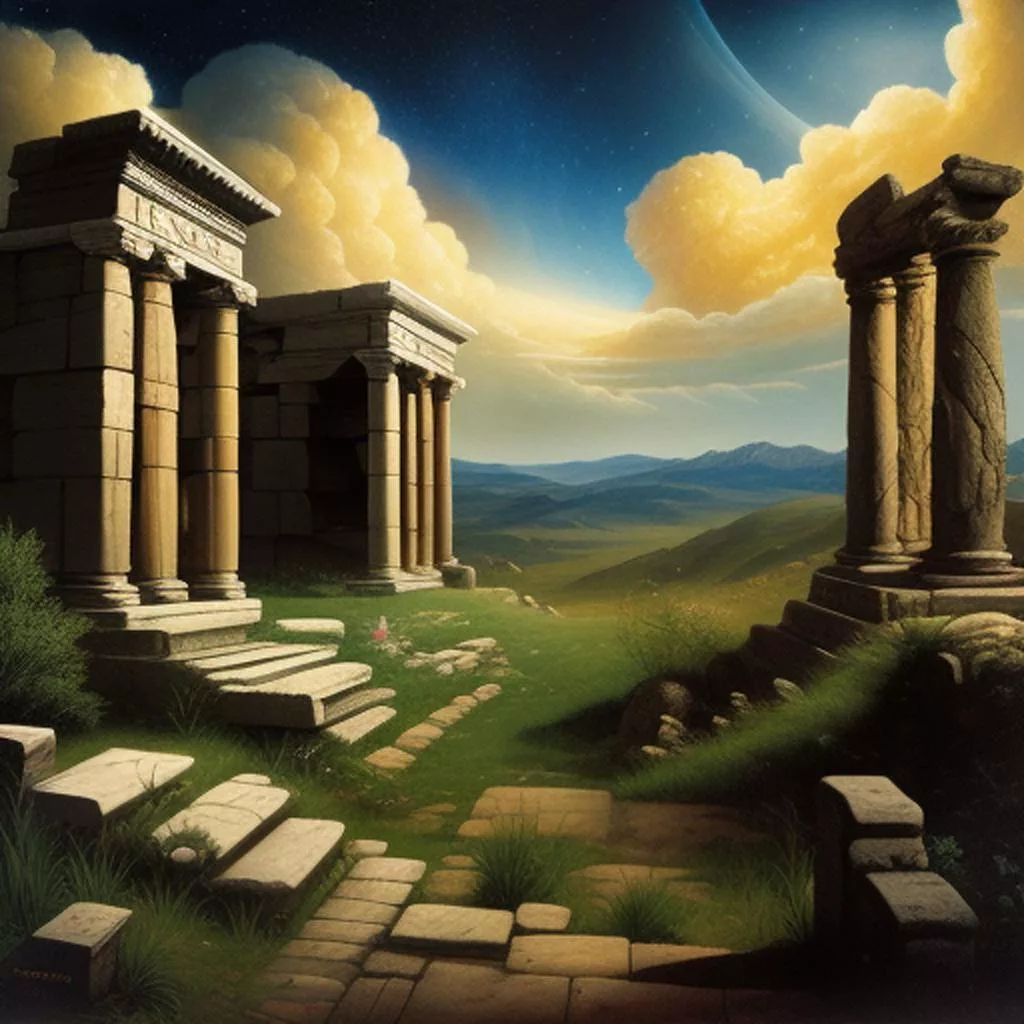

The ancient theories around the ether reflect humanity’s enduring attempt to understand the universe’s fundamental nature. While modern physics has moved away from the ether concept in its classical form, the legacy of these ancient ideas continues to influence our quest to comprehend the cosmos and the underlying principles that govern it.
Thank you for reading, shares and comments!
✨ Comment Policy ✨
We welcome thoughtful, kind, and constructive comments that contribute to meaningful conversations.
Please note:
- Promotional links and unsolicited offers will be removed.
- Spam, irrelevant content, or self-promotion without prior permission will not be published.
- We value quality engagement over quantity — thank you for helping us keep this a respectful and inspiring space!
Sources openai Language models, aitrot, picsart and mib
Take time to learn
Invest in your future
Embark on a journey into the realm of affiliate marketing and craft your own website within a vibrant, supportive community. Join me in this adventure, where you can begin as a free starter and stay as long as you desire. Enjoy complimentary hosting and foundational teachings to set you on your path. For those with advanced skills, opportunities to elevate your expertise await. Take a moment to explore and witness the magic for yourself!

